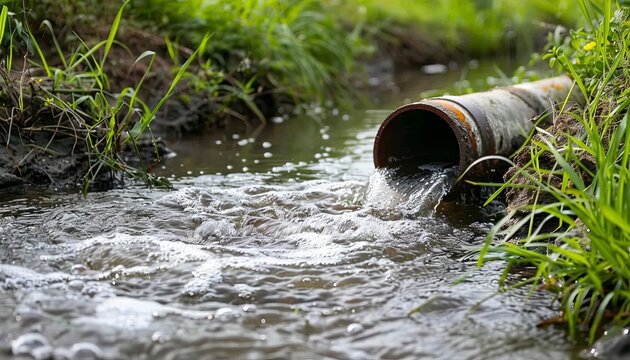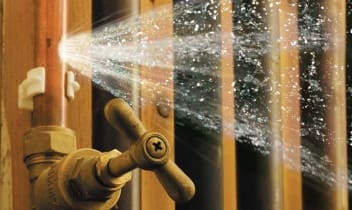Preventing a Burst Pipe: Tips for Protecting Your Plumbing During Winter
Preventing a Burst Pipe: Tips for Protecting Your Plumbing During Winter
Blog Article
Avoiding Burst Pipeline: Vital Tips to Safeguard Your Pipes
Protecting against ruptured pipes is an important problem for homeowners, specifically throughout cooler months when the threat of cold is increased. Applying strategic steps such as appropriate insulation, routine inspections, and maintaining consistent indoor temperature levels can considerably reduce the possibility of pipe failure.
Understand Pipe Vulnerabilities
Recognizing pipe susceptabilities is important for efficient plumbing maintenance and protecting against pricey damage. A number of variables add to the susceptibility of pipes to bursts, consisting of product composition, age, and ecological problems. Older pipelines, especially those made from galvanized steel or polybutylene, commonly break down over time, bring about increased risk of ruptures and leaks.
Temperature fluctuations can also substantially influence pipe integrity. In cooler climates, water entraped in pipes can ice up, expanding and putting in stress on the pipeline wall surfaces, which might eventually cause a burst. High water pressure can stress pipelines, particularly at joints and bends, heightening the possibility of failure.

Insulate Pipeline Properly
Appropriate insulation of pipes is vital for protecting against freezing and succeeding ruptureds during cool weather (burst pipe). Insulating your plumbing system efficiently safeguards versus temperature level drops that can cause pricey damage. Begin by recognizing prone areas where pipes are subjected to outdoor temperatures, such as cellars, attic rooms, and exterior wall surfaces
Usage foam pipe insulation sleeves or cover insulation tape around these areas to provide a safety barrier. Make certain that all sections of the pipelines, particularly those with restricted warmth exposure, obtain ample insulation. Pay unique focus to installations and joints, as these are more susceptible to cold.
When insulating, it's crucial to choose materials that fulfill regional structure codes and are suitable for the certain environment. Fiberglass insulation is usually recommended for its thermal resistance residential properties. In addition, think about using warm cables or tape in extreme conditions, which can be connected in to give extra heat
Routinely examine insulated pipelines for any kind of indications of wear or damages, as compromised insulation can decrease its effectiveness. By taking these proactive actions, you significantly lower the threat of pipe ruptureds, guaranteeing a reputable pipes system throughout the winter season months.
Maintain Regular Temperature
A stable indoor temperature level is vital for protecting against ruptured pipes throughout the cold months. When temperature levels drop, water within pipes can freeze, broadening and creating pressure that may ultimately create the pipes to ruptured. To alleviate this risk, homeowners ought to preserve a regular temperature level throughout their living room, ideally no less than 55 ° F(13 ° C)Making use of a programmable thermostat can help take care of indoor temperatures efficiently, guaranteeing that areas with plumbing continue to be warm even read review when your home is unoccupied. Pay unique attention to areas that are much more at risk to cold, such as basements, garages, and attics. Keeping cabinet doors open under sinks can also permit warmer air from the home to circulate around pipes.
This small flow of water can prevent freezing by alleviating pressure within the pipelines. By carrying out these techniques, property owners can substantially reduce the threat of pipeline bursts and protect their pipes systems against the harsh winter months elements.
Regularly Check Plumbing
Routine evaluations of pipes systems are critical for avoiding ruptured pipes and keeping general home stability. Regular checks enable house owners to recognize potential issues prior to they rise right into expensive repair work or major water damages. Throughout these assessments, it is necessary to analyze noticeable pipes for indications of deterioration, leaks, or wear. great site Pay unique attention to locations prone to cold, such as basements, attic rooms, and exterior walls.
Additionally, evaluating connections and joints is crucial, as these points are frequently prone to leaks. Home owners need to likewise evaluate water pressure levels, as extreme stress can stress the plumbing system and boost the threat of pipeline bursts.
Think about scheduling specialist plumbing evaluations a minimum of annually, particularly prior to wintertime, to ensure your system is planned for chillier temperature levels. Regular examinations not just assist in recognizing prompt concerns but likewise foster long-lasting upkeep strategies that can enhance the lifespan of your pipes system. By being positive in your method, you can secure your home versus the pricey and turbulent effects of ruptured pipes. Focusing on pipes evaluations is an investment in your home's health and wellness.
Know Emergency Procedures
Recognizing emergency treatments is essential for every house owner, especially after performing routine pipes evaluations. Being prepared for a plumbing emergency can substantially minimize damages and save prices.
Next, keep essential devices his explanation convenient. A plumbing emergency package need to include a wrench, plunger, and towels, along with a flashlight and a container for small leakages. In addition, take into consideration having the get in touch with details for a trusted plumbing easily offered, must the circumstance escalate past your control.
If you spot a leak or burst pipe, promptly switch off the water system and alert your plumbing professional. In addition, document the damage with photos for insurance purposes. burst pipe. Recognize the signs of potential pipes problems, such as unusual water stress changes or damp areas on wall surfaces
Eventually, aggressive understanding and quick activity are crucial in handling plumbing emergency situations, guaranteeing your home continues to be protected and decreasing potential damage.

Verdict
To conclude, protecting against ruptured pipes requires a complex strategy that consists of understanding pipeline vulnerabilities, proper insulation, maintaining regular interior temperature levels, routine examinations, and expertise of emergency situation treatments. By applying these essential approaches, the risk of plumbing failures can be substantially minimized, therefore ensuring the long life and effectiveness of the pipes system. Aggressive actions not just protect against prospective damages however also add to general water conservation and the protection of residential or commercial property.
In chillier environments, water entraped in pipes can freeze, broadening and putting in stress on the pipe walls, which might inevitably lead to a ruptured. When temperature levels decline, water within pipelines can ice up, expanding and creating stress that might inevitably cause the pipes to burst. By applying these strategies, house owners can significantly decrease the danger of pipeline ruptureds and protect their plumbing systems versus the harsh winter season elements.

Report this page